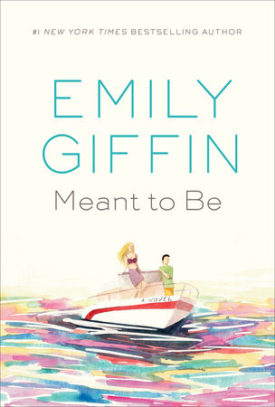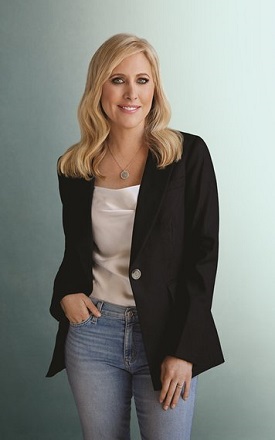 Synopsis:
Synopsis:
A restless golden boy and a girl with a troubled past navigate a love story that may be doomed before it even begins.
The Kingsley family is practically American royalty, beloved for their military heroics, political service, and unmatched elegance. When Joseph S. Kingsley III is born in 1960, he inherits the weight of that legacy. Growing up with all the Kingsley looks and charisma, Joe is expected to take up the mantle after his father’s untimely, tragic death when Joe is just three years old. But like his father, he is a little bit reckless and can’t seem to figure out how to bear the expectations of an entire country upon his shoulders.
On the other hand, no one ever expected anything of Cate. She also grew up in a single-parent household. She and her mother barely scraped by in a small apartment. A beautiful blond, Cate is discovered when she is just a teenager. She recognizes that modeling is her ticket out of the cycle of disappointment and disillusionment that her mother has always inhabited, as well as what has become an abusive household since her mother married Carl, a police officer. Before long, Cate’s face is everywhere and she is traveling in social circles in which she’d be a pariah in her true story were known.
When Joe and Cate’s paths cross, their connection is instant. But it is tested. Can their relationship survive the glare of the spotlight in which Joe lives his life? Just as they arrive at a make-or-break moment, the pattern of tragedy that plagues Joe’s family, despite all that privilege, appears poised to repeat.
Bestselling author Emily Giffin invokes a gilded period in modern American history, telling the story of a love that may or may not be powerful enough to transcend the circumstances arrayed against it . . . and the challenges of finding your way to the place you belong.
Review:

Emily Giffin is the author of ten bestselling books, including Something Borrowed, Something Blue, First Comes Love, All We Ever Wanted, and The Lies That Bind. A Chicago native, Giffin graduated summa cum laude from Wake Forest University and the University of Virginia School of Law, and was a litigator at at large Manhattan law firm for several years. But she dreamed of being a writer, and even though her first manuscript did not sell, she bravely left the practice of law, moved to London, and pursued writing full-time. The risk paid off when she landed a two-book deal and Something Borrowed became a bestseller. More than twelve million copies of her books, which have been translated into thirty-one languages, have been sold and five of her novels, including Something Borrowed, have been optioned for film adaptations.
Her latest was inspired by the lives of John F. Kennedy, Jr. and his wife, Carolyn Bessette. Giffin says she “grew up fascinated by the Kennedys.” The Kennedy family as a whole “captured the imagination of a nation and took on cultural and emotional significance beyond politics,” Giffin observes. The Kennedy family has a long history of service, punctuated by scandals and numerous tragedies often referred to as “the Kennedy curse.” Giffin says she contemplated “the layers of hypocrisy and self-destruction that so often seem to accompany unchecked privilege and ambition.” When she arrived in New York City as a young attorney in the mid-1990’s, having studied civil rights and the other causes for which the Kennedys fought, she became “especially enchanted” with the couple. Kennedy served as a Deputy District Attorney in New York City prior to founding George Magazine, while Bessette, who held a degree in elementary education, modeled briefly and worked in the fashion industry, primarily for Calvin Klein. Giffin recalls that she, like other Americans, “hoped” that Kennedy would escape the curse to fulfill his father’s legacy. Of course, it was not to be. Their lives ended tragically in July 1999 when the Piper Saratoga light aircraft Kennedy was piloting en route to Martha’s Vineyard plunged into the Atlantic Ocean, killing the couple and Bessette’s sister, Lauren.
Giffin says she “began to obsess over the personal component of their very public lives and deaths.” She pondered both the pressure Kennedy must have endured as the world watched him grow up and expected him to follow in his father’s footsteps, as well as how challenging it must have been for Bessette to find her place in the Kennedy family. “As a writer I often ask myself what if.” She found herself returning to the “unfulfilled promise” and unanswerable questions about what might have been. They motivated her to create an “entirely fictional work” examining “the crushing weight of expectations and history” and a woman who finds “herself in the shadow of an iconic man and family” in which the real lives of John Kennedy and Carolyn Bessette serve merely as the underlying “framework.” Indeed, in Meant to Be, a story about the most eligible bachelor in America and a girl with a troubled past, Giffin considers the proverbial question, “Can love conquer all?”
To relate their stories, Giffin employs dual first-person narratives from Joe and Cate. The technique proves highly effective because Giffin takes readers into the minds and hearts of her protagonists in this character study. Joe Kingsley explains his storied family’s history and the death of his famous father, who left the U.S. Senate to join NASA and perished when Joe was just three years old. Giffin places him inside the Command Module of the Apollo 1 that burst into fire in January 1967 killing astronauts Gus Grissom, Ed White, and Roger Chaffee. In the aftermath, a grieving nation questions what might have happened if only things had gone differently that day and Joe grows up in the shadow of a great man taken too soon. He has never known life without privilege and wealth, as well as “the heavy weight of so many expectations.” His own mother, with whom he has a difficult relationship, regularly compares him to her deceased husband. Fortunately, Joe enjoys a close relationship with his grandmother.
Cate is a few years younger than Joe. Like him, she grows up with the knowledge that her father was killed in a motor vehicle accident when she was three years old. For a time, she and her mother lived with her grandmother. But eventually they moved into their own apartment, apparently estranged from her grandmother. Cate’s mother, a waitress, is fixated on finding a new husband. Along with money, a husband is, for her, a prerequisite to happiness. Money is tight, but Cate is a happy child except when her mother finds a new boyfriend, sometimes leaving her with an elderly babysitter for days at a time. Eventually, her mother finds Chip, a police officer, who physically and verbally abuses her mother.
Joe has the benefit of a first-class education and the unwavering friendship of Berry Wainwright, a new student that he is asked by the headmaster to “shepherd” when she moves to New York from London after her parents die. She becomes the gatekeeper to Joe, providing advice about which girls he should date and trying to dissuade Joe from reckless pursuits. Cate and her mother finally achieve middle class status, but Chip’s presence in the household convinces Cate that boys and men cannot be trusted, and nothing good can come from romance. Her childhood experiences inform her determination and inner strength. Still, she is well aware of handsome and charming Joe Kingsley, and even has a poster of him on the wall of her bedroom because, like most girls her age, she is a bit obsessed with the closest thing America has to a prince and his royal family.
Cate is discovered as a teenager and begins earning money as a model. Her career is far more important to her than school because it is her ticket out of her mother’s house as soon as she turns eighteen. As she finds herself becoming increasingly famous and financially secure, she also suffers from “imposter syndrome,” convinced that if the truth about her background comes to light, her career will come to an end. and she’ll find herself back in New Jersey. Meanwhile, Joe just wants to be the best version of himself, not a carbon copy of his father. After passing the Bar Exam on his third try, he becomes a Deputy District Attorney in New York, but his heart is often not in the fight to convict, especially when the defendant is charged with low level or drug offenses. He dates a woman that his family and Berry approve of, and he genuinely cares about. But one day he happens upon a photo shoot featuring “a gorgeous blond” who seems vaguely familiar — “the most beautiful girl I’d ever seen . . .” He doesn’t believe in love at first sight, but his chemical reaction to Cate is undeniable — “a little explosion in my chest.”
Having established her characters’ histories and emotional struggles, Giffin deftly portrays their meeting and the development of their relationship. When they meet, Cate is dating another man and reluctant to get into any serious relationship. Giffin believably depicts her conflicting feelings, the basis for them, and the slow, hesitant way in which she acknowledges that her attraction to Joe is growing. Cate is still harboring secrets about her background, including her failure to finish high school and Chip’s ongoing abuse of her mother, who steadfastly refuses Cate’s offers of help to extricate herself from the marriage. Cate is painfully aware that her life has been far different from Joe’s and wants to avoid the media frenzy that will inevitably ensue if it becomes known that they are dating, even though she segues from modeling to fashion styling and sales, giving her a lower public profile. She is also desperately afraid that if the truth about her childhood and how she achieved career success comes to light, Joe will succumb to pressure from his mother, Berry, and others to align himself with a more suitable woman, especially in light of a shocking revelation that further complicates and threatens their relationship. After all, as the only surviving son, it falls to Joe to tangibly carry on his family’s legacy. Does he love Cate enough and is he strong enough in his convictions to withstand the stressors that jeopardize their future?
Giffin’s affinity for her characters is evident throughout the tale. She compassionately portrays their doubts and fears, along with the joy they experience when they are together. Joe explains that before he met Cate, “I had believed that passion came with a price. That you had to choose between being madly in love and being at peace. With Cate, I had both and it was magic.” She believably explores the judgment Joe is subjected to by family and friends, as well as his personal growth as he journeys toward becoming the kind of many he really wants to be and focusing on what matters most to him. Because her characters are fully formed and deeply sympathetic, Giffin inspires readers to care deeply about them and their well-being. This is particularly true of Cate who, as the story progresses, embodies internal strength, resolve, and power, largely because she has had to take care of herself. Giffin expertly enhances the story’s tension, accelerating the pace of the narratives, as Joe’s reckless nature again surfaces. Will Joe and Cate’s story end tragically? Or can Joe overcome the “Kingsley curse” so that he and Cate can enjoy the future they have envisioned together — madly in love and at peace? Giffin provides a somewhat surprising and thoroughly satisfying conclusion to the story.
Giffin says she believes in “the magic and beauty of fiction — we can take a sad story and transform it into something completely different.” In Meant to Be she invites readers to ponder what it would be like to confront the challenges that Joe and Cate face: how different life would be under the crushing weight of others’ expectations, how much courage it would require to defy those expectations in favor of designing a meaningful life, and how difficult it would be to risk privilege, wealth, comfort, and the alluring aspects of fame in order to spend your life with the one person who truly makes you happy. Is Joe and Cate’s romance meant to be . . . and meant to end happily or, like their real-life inspirations, tragically? Meant to Be was meant to be read on a beach or by a pool in order to find out.
Excerpt from Meant to Be
CHAPTER 1
Joe
I don’t remember my father. At least that’s what I tell people when they ask if I do. I was barely three years old when he died. I once read that it’s impossible to have memories much before the age language fully develops. Apparently, we need words to translate our experiences, and if memories aren’t encoded linguistically, they become irretrievable. Lost in our minds. So I’ve accepted that my vague recollections of the day he was put to rest at Arlington National Cemetery are fabricated—an amalgam of photographs, news footage, and accounts from my mother that were somehow planted in my brain.
But there is one memory that can’t be explained away so easily. In it, I am wearing red footie pajamas, padding down the wide-plank wood floors of our home in Southampton. It is nighttime, and I am following the white glow of Christmas lights, along with the hum of my parents’ voices. I reach the end of the hallway and peer around the corner, hiding so I don’t get in trouble. My mother spots me and orders me back to bed, but my father overrules her, laughing. I am overcome with joy as I run to him, climbing onto his lap and inhaling the cherry-vanilla scent of his pipe. He wraps his arms around me, and I put my head on his chest, listening to the sound of his heart beating in my ear. My eyelids are heavy, but I fight sleep, focusing on one gold ball on our tree, wanting to stay with him as long as I can.
I guess it’s possible that this memory, too, is illusory, a scene I imagined or dreamed. But it almost doesn’t matter. It feels so real. So I’ve decided that it is, clinging to it as the one thing of my father’s that belongs only to me.
I know what people would say to this. They’d say, No, Joe, you have so much more than that. You have his wristwatch and his rocking chair. You have his eyes and his smile. You have his name.
It always comes back to that name—Joseph S. Kingsley—which we also share with his father, my grandfather. The S is for Schuyler, the name of the family who landed in New Amsterdam via the Dutch Republic in the seventeenth century. Somehow, we spun off from those folks—as did the Oyster Bay Roosevelts—privilege and wealth begetting more privilege and wealth as a handful of families intermarried, curried favor, and became increasingly prominent in business, the military, politics, and society. My great-grandfather Samuel S. Kingsley, a financier and philanthropist, had been close friends with Teddy Roosevelt, the two boys growing up a few blocks apart in Manhattan, then attending Harvard together. When Samuel died in a freak hunting accident, Teddy became a mentor to my grandfather, recruiting him for his Great White Fleet and eventually introducing him to my grandmother, Sylvia, a fiery young suffragist from yet another prominent New York family.
Joseph and Sylvia married in 1919, right before my grandfather shipped out for the First World War. While Joseph commanded a Sampson-class destroyer and earned the Navy Cross, my grandmother continued to battle for women’s right to vote, helping to organize the “Winning Plan,” a blitz campaign that lobbied southern states to ratify the Nineteenth Amendment. Her fight would last longer than the war, but on August 18, 1920, the suffragists finally got the thirty-sixth state they needed when a young man in the Tennessee statehouse changed his vote at the eleventh hour, crediting an impassioned note he’d received from his mother.
My grandmother would tell this story often, citing it as an auspicious sign for her own son—my father—born that very same summer day. Two more boys and three girls would follow, making six kids in total, and although each had unique gifts and abilities, my grandmother turned out to be right. My father was special, her eldest son emerging as the standout of the Kingsley clan.
My father excelled in everything as a boy, then graduated at the top of his class at Harvard before matriculating at Yale Law. When World War II broke out during his second year at Yale, he entered the NROTC, then joined my grandfather in the Pacific. Whole books have been written about their time in combat, but the most significant moment came in late 1944, when the two Joseph Kingsleys found themselves side by side in the Battle for Leyte Gulf, the rear admiral and lieutenant junior grade narrowly surviving a series of kamikaze attacks, along with a typhoon, before securing the beachhead for the Sixth U.S. Army. Upon their return home, a photo was snapped of my grandmother embracing her husband and son on the tarmac. The image would appear on the cover of Life magazine, along with a one-word headline heroes.
After the war, my grandfather served in Truman’s State Department, while my father pursued his love of naval aviation. He completed advanced flight training, then went on to test pilot school, kicking ass and taking names. Nobody worked harder, earned higher marks, or had more raw ambition than my father, but he also knew how to have a good time and could drink anyone under the table. He was a man of contradictions or, as one biographer described: “Rugged yet debonair, brash yet introverted, Joe, Jr., was a disciplined dreamer and a risk-taking perfectionist.”
It’s a description I’ve often returned to in my mind, though I find myself wondering whether it was true, or if people just see what they want to see.
One thing I know for sure, though, is that my father had no enemies. It’s a claim heard in eulogies or biographies, especially about men who die young, but in my father’s case, it was the truth. Everyone loved him. Of course, that included women, and to his mother’s frustration, he loved an awful lot of them as a young man—and had trouble choosing just one.
That all changed in April 1952, when my father attended a state dinner at the White House and met my mother, Dorothy “Dottie” Sedgwick. The daughter of a diplomat, Dottie was a gorgeous, young socialite, fresh out of Sarah Lawrence, who had just been named to Look magazine’s best-dressed list. What intrigued my father the most, though, wasn’t her beauty or style but her poise and worldliness. She seemed so much older than her nineteen years, and after overhearing snippets of a conversation she was having with Queen Juliana of the Netherlands, he was smitten.
Later that evening, he asked her to dance, and the two hit it off, talking and laughing as he twirled her all over the White House ballroom. The following morning, The Washington Post ran their photo in the lifestyle section, along with a description of my father’s finely tailored ivory dinner jacket and my mother’s powder-blue chiffon gown. The society pages followed every move of their ensuing courtship, and by the time they were engaged a year later, Joe and Dottie were household names. America’s sweethearts.
A lavish wedding was planned in the Hamptons, but the Korean War put things on hold, as my father returned to combat. From the cockpit of his F-86 Sabre, Captain Kingsley would down six enemy aircraft, becoming one of only two navy aviators to achieve ace status, before returning home to marry Dottie in the summer of 1954. Their wedding was the social event of the year, solidifying my mother as a fashion icon. Women everywhere, including Audrey Hepburn, emulated her tea-length wedding dress, paired with elbow-length gloves.
Shortly thereafter, my father announced his bid for New York’s junior Senate seat. He ran as a Democrat but garnered vast bipartisan support and won the election handily, becoming a rising political star. My grandmother was thrilled and my mother relieved, believing that politics would keep her husband out of harm’s way. For several golden years, they were happy, splitting their time between Georgetown, New York City, and Southampton.
But in the fall of 1957, just as my parents were planning to start a family, Sputnik 1 ushered in the Space Race, and my father grew restless, dreaming of flight. My mother begged him to stay the safer course, but my father had an iron will, and eventually he left the Senate for NASA, the agency he had helped create. Anyone alive at that time knows that astronauts were larger-than-life figures, revered as America’s greatest heroes in a global conflict between democracy and communism. The ultimate goal, as President Kennedy proclaimed before a joint session of Congress, was “landing a man on the moon and returning him safely to the Earth.” It seemed an impossible dream to most, but not to my father and his cohorts in the early days at Cape Canaveral.





Comments are closed.